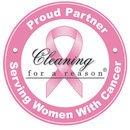10 Tips On How You Can Conserve Water
If you're looking to cut down costs around your home, one of the easiest ways is to reduce water waste. Not only does it help you economically, but also personally.
Conserving your water can help lead to a cleaner, healthier, and more eco-friendly home
In this day and age, the green initiative is alive and well. When most people think of the green initiative, they think of clean. Cutting back on your water usage allows you to be a cleaner home owner.
Water conservation is not an easy thing to manage when it comes to cleaning your home. Think about how much water you use when you're going about your daily cleaning chores. Doing the laundry requires you to use your washing machine, which consumes gallons of water so that you can have clean clothes. Similarly, dishwashers also consumer gallons of water as well. Thankfully, many appliance producers are creating green initiative appliances that use less water.
Taking small steps towards conserving water is the easiest way to make it part of your daily cleaning routine. But the small steps you take towards conserving water go a long way. MNN.com has a list of tips that you can use to conserve water and do your part for the green initiative.
Ways to save water
The easy access and plentiful availability of water in America and other highly developed countries can be blamed for the often wasteful attitude toward water use. For some consumers, it takes a major drought to make them aware of water waste. Others are spurred into action by a particularly high water bill. Thankfully, there are also those who try to use less simply to preserve this crucial life-giving resource.
Regardless of which group you fit into – no need to confess – we’ve put together a list of ten ways to save water, use less, and feel good about preserving our limited supply. You can take daily small steps that make a big difference or go all the way by purchasing water efficient appliances. Either way, you’ll gain a healthy appreciation for a precious commodity.
Here are a few ideas:
1.
Let the pros wash your car.Retail car washes use about 1/3 the water needed to wash with a hose in the driveway, and many recycle their water. Another environmental benefit is that wastewater from dirty cars is sent to a treatment plant instead of polluting the streets.
2.
Throw those dishes in the dishwasher, unless you’ve got a really old water-hungry model.Newer models typically use ten gallons compared to twenty to wash by hand. But if you’ve got an old model or have just a few dishes to wash, fill a basin in the sink and scrub the dishes without running the tap. Then turn the water on hot and low to rinse.
3.
Don’t run a load with only a few pieces of clothing.Spend a few extra minutes rooting around the bedroom to find items that need washing. Be sure the washer is set to the correct water level.
4.
No earth-respecting person brushes their teeth with the water running.But when you do turn on the tap to rinse out your mouth, a small flow of water does the trick - there’s only so much water your palm can hold. And while we’re on grooming habits, shortening your shower by a minute or two can save hundreds of gallons a month. By all means, get clean, but do it quickly.
5.
No need to wait for the water to get warm when running a bath.Put the stopper in and then turn on the water. It’ll get hot enough to cover up for those first few cool moments.
6.
Grab a wrench and check for leaks and water wasters both indoors and out. That includes a faulty toilet flapper that constantly needs a hand at closing properly – bite the bullet and replace it, it’s not too hard. Also consider placing a Ziploc bag of pebbles and water in your tank to use less water each time you flush.
7.
Keep a small pail on the counter for compost instead of throwing peels, egg shells and coffee grounds in the disposal, which requires running the tap. As an added water-saving benefit, compost-rich soil needs less watering.
8.
Toss the murky water from your fish tank in your garden. Although it’s a nasty looking environment for your fish, it’s a nutrient-rich drink for your plants.
9.
Taller grass holds moisture better than short grass, so keep it at a higher setting when mowing.
10.
Leftover ice cubes should be tossed onto a houseplant or in the garden. And keep a pitcher of water in the fridge for cold drinks instead of running the tap until it gets nice and cold.
Implementing these water-saving tips will lower your water bill and contribute to world-wide water conservation efforts. It’s also a step toward living consciously and truly appreciating the natural resources we depend on to live each day.
But going green only begins with conserving water. If you're looking for other green alternatives, you can try using your own home made cleaning products instead of purchasing expensive brand products. Mixing a paste of baking soda and vinegar can help to remove those stubborn toilet bowl rings. You can polish wood with three parts olive oil and one part white vinegar. Or you can use a cotton swap of rubbing alcohol to clean residue off of your windows. Using all of these tips can lead to a cleaner, healthier, and greener home.
Where in Medway are You Looking for Cleaning Service?
The Maids Medway
149 Main Street, Medway, MA 02053






